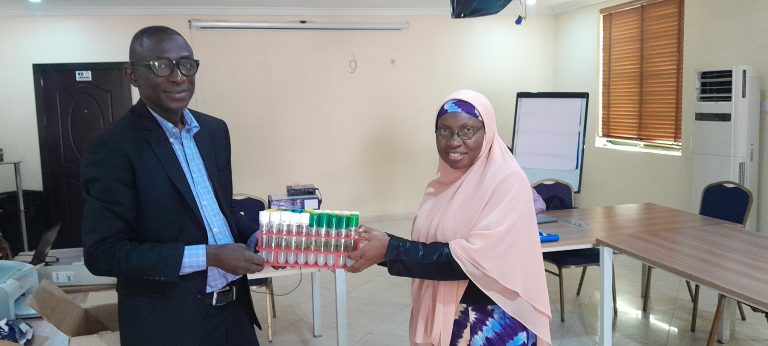Collaborative Effort Targets Yam Viruses in Nigeria: CSIR Crops Research Institute and IITA PROSSIVA Join Forces
In a pioneering move aimed at bolstering Nigeria’s agricultural landscape, the Council for Scientific and Industrial Research-Crops Research Institute (CSIR-CRI) has partnered with IITA–CGIAR PROSSIVA project to combat the rampant viruses affecting yam crops in the region.
The initiative saw IITA PROSSIVA receiving untested seed yam materials from CSIR-CRI, an essential step in implementing more effective disease diminution techniques. The primary goal is to optimize processes to ensure a more abundant supply of clean yam materials while enhancing their handling procedures. This concerted effort holds promise for significantly impacting yam production, a vital aspect of the country’s agricultural sector.
The collaboration between CSIR-CRI and IITA PROSSIVA is set to revolutionize the fight against yam viruses. By leveraging their expertise, the partnership aims to efficiently separate and identify the four primary viruses known to affect yams: Yam mosaic virus (YMV), Yam mild mosaic virus (YMMV), Cucumber mosaic virus (CMV), and Yam chlorotic necrotic mosaic virus (YCNMV).
The ultimate beneficiaries of this collaboration will be institutions like Savanna Agricultural Research Institute (SARI) and the National Center for Genetic Resources and Biotechnology (NACGRAB), which will gain access to superior quality, disease-resistant yam materials for multiplication and widespread distribution.
The significance of this joint effort cannot be overstated. It represents a crucial stride in addressing the challenges faced by yam farmers across Nigeria. Beyond mitigating the impact of viruses, this partnership also aims to enhance overall productivity and sustainability in yam cultivation.

Navigating uncharted territory, CSIR-CRI and IITA PROSSIVA approached this collaboration with cautious optimism, demonstrating their dedication to finding innovative solutions. Empowering farmers with disease resistant yam varieties resilient against the viruses menacing their harvests.
Yam viruses such as YMV, YMMV, CMV, and YCNMV have been notorious for reducing yields, compromising tuber quality, and weakening plants, rendering them more vulnerable to additional diseases or environmental stressors.
However, the implementation of agricultural best practices, including the use of virus-free planting materials, stringent field hygiene measures, and the adoption of virus-resistant varieties, holds the promise of managing these viral infections effectively in yam cultivation.

This collaborative venture represents a beacon of hope for Nigeria’s yam farming community, signalling a proactive approach towards ensuring a sustainable and robust agricultural future for the nation.
Contributed by Victoria Adabale
